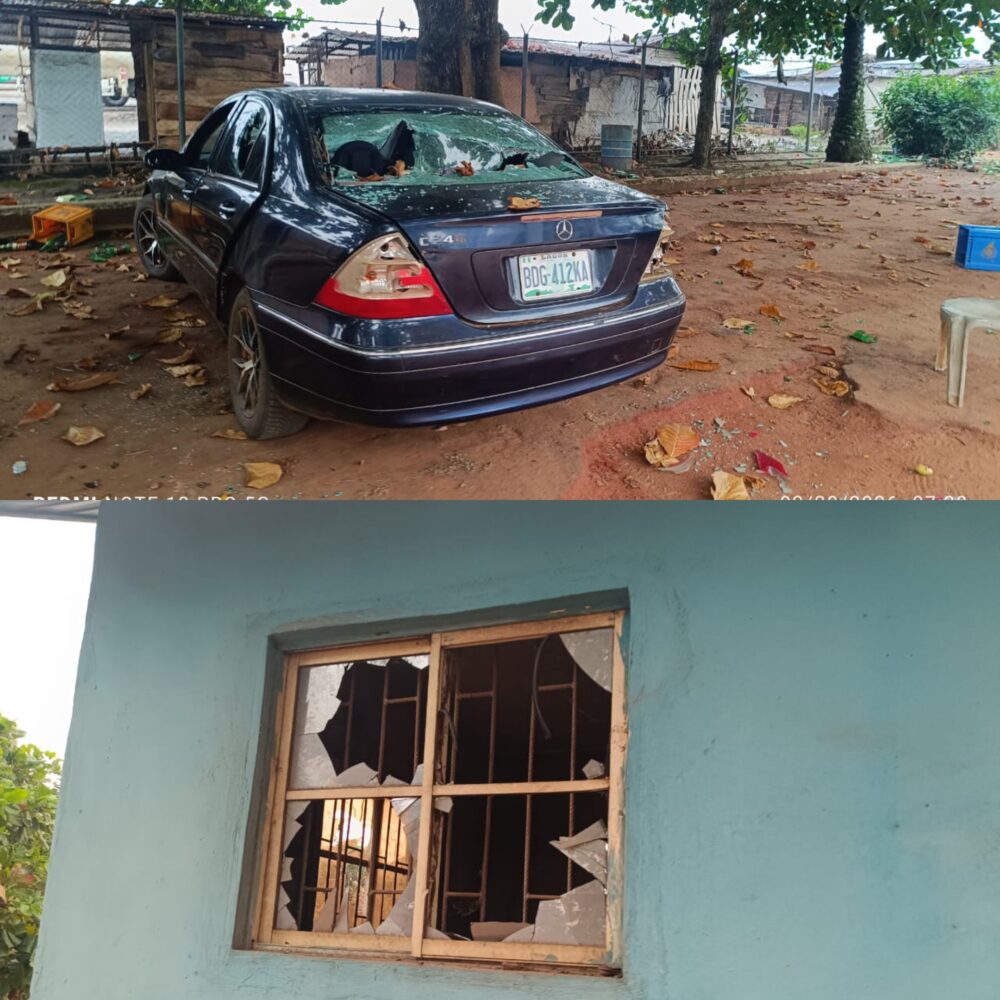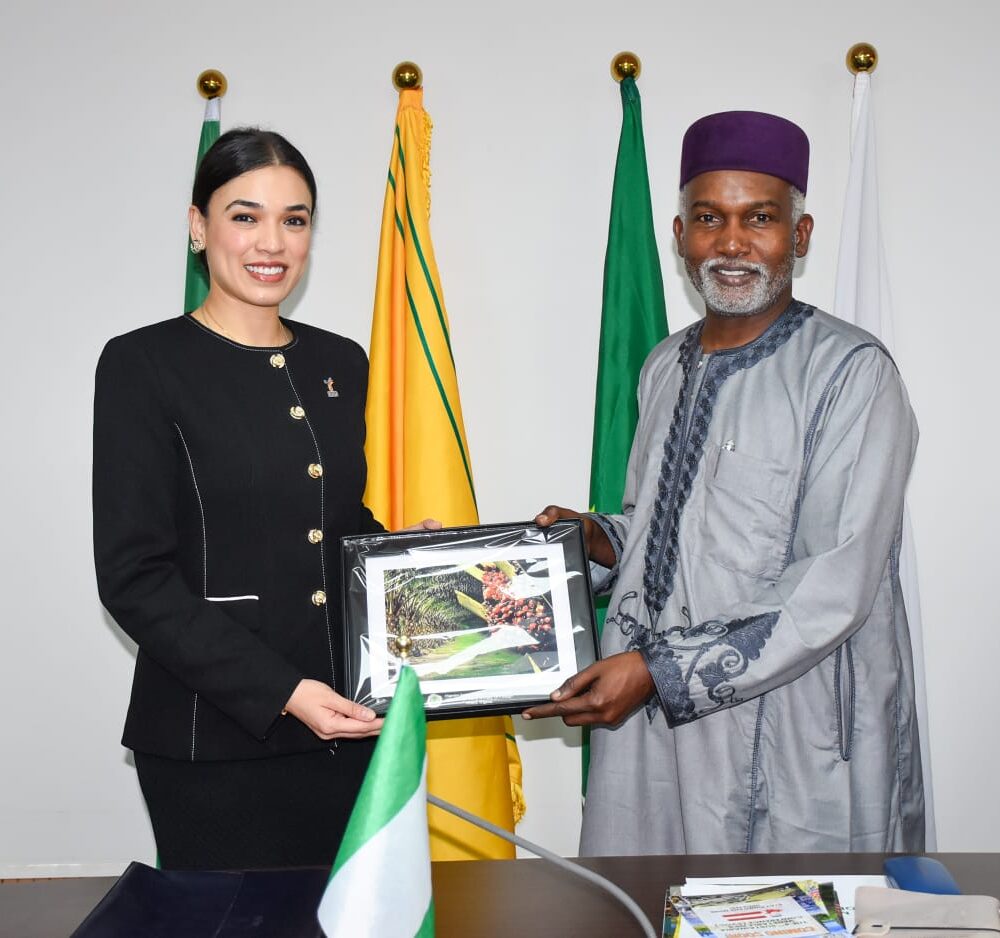“Olagunju, let me know when you want to sell your car because I know you will need money very soon.” I got that text message the day I left government suddenly in November 2010. The sender hid his identity but I could guess the ‘friendly’ corner where it came from. I read it and in amusement showed it to my wife who read it with shock and said “let us pray.” We prayed and God answered every word of the prayer. If the sender is still alive and has a phone or could afford a newspaper, he would know how in vain the bangles of his wish were cast. There were other more sinister moves, and, when I noticed that the archer was unrelenting, I did what Eneke, the bird, did. Several of the new sheriffs in town suffered similar attacks from those who took over that time. Many of those who have just left power are likely quietly enduring such inclemency currently. The politics of Osun State is toxic and its operatives very intimately married to destructive intrigues.
The world is aghast as Osun State fights over thrones and in figurative and physical terms sets fire to palaces. If palaces are made to become carcasses, where is the place of restful peace after the resolution of familial claims and counterclaims? Juju music commander, Ebenezer Obey, in a song prayed: “Èsù má se mí (may Esu not attack me).” A resounding Amen follows that prayer wherever it is said to bind the bad. This spirit joins the grieving to weep and the scared mourner takes to his heels. In the pantheon of the Yoruba, this messenger sheds blood when the owner of the problem is shedding tears (Elékún n sunkún, Láaróyè n sun èjè). He does much more than that. He follows the pressed into the toilet and excretes blood while his companion does the normal. Wherever he operates, the head becomes the buttocks and everywhere wears the ambience of war.
There is a change of government in Osun State; the Government House is reportedly looted bare. Unlike the Sri Lankan presidential palace that was in July this year overrun publicly by a mob, no one is admitting to have used Osun State’s missing knife to peel their yam. I have read the accusation from the new government and watched videos. I have also read the riposte from the ousted government. I found it intriguing that both sides have not called for a review of close circuit television camera recordings of who did it and when. The Government House is supposed to be the safest place in a state. It is supposed to enjoy a 24-hour, comprehensive security cover. So, where were the security people and their equipment? What happened? Who did it?
Politics is a full-time job in Nigeria; and in its states of anomie, it is the vocation and avocation of dreamers. In Osun State, everyone is both a politician and a public affairs analyst. Political operators in Osun State are suckled and weaned in the shrine where three footpaths meet. There, they share lobes of kola nuts with even Hermes, the old man at the junction who instigates a fight and then stands by to watch. The acts and actions of politicians deck them with the praise names of Èsù, the god of duplicitous chance and indeterminacy. The wily deity comes in through the front door; the owner of the house runs out through the back door. If you know the panegyrics of politics, you have gained the licence to swim in its crocodile-infested murky waters.
Osun State has profoundly affected the electoral politics of Nigeria more than any other state in Nigeria since 1999. The Court of Appeal lost its final say on governorship election petitions because of Osun State and a decision that wore the dubious regalia of controversy. There were amendments to the constitution limiting the duration of election petition trials to 180 days, again because of what happened in Osun State at a point in recent history. Today, every Nigerian is anchoring their optimism for a free and fair 2023 election on BVAS and its magic. But as I type this, BVAS is on trial in Osun State. The APC holds a BVAS report signed by INEC which says there was over-voting in hundreds of polling units in the July governorship election; another BVAS report signed by the same INEC is in the hands of the PDP which says no, there was no over-voting. So, you see, BVAS is on trial; INEC is on trial; democracy itself will soon be arraigned in that state where there is always several shades of truth.
If you are interested in whatever will happen to Nigeria and its democracy in 2023, pay attention to Osun State and happenings there. There have been dramas in that state before and since the July 2022 governorship election there. There will be more drama in that state going forward. It is not a normal place. I am not sure there is any informed Nigerian who is not aware of the very odious gas oozing out of the cesspit of the state. An election was held; someone won, someone lost. A government left power; another came into power. There is rancour and bitterness and recriminations everywhere. But no one who knows the DNA of the state is shocked. It is the normal rite of baton-change; a periodic festival of riots. All the actors and actresses on both sides are from the same maternal room. They will likely sleep in the same bed today at dusk. There are cross-party movements already into the new house of power and influence. I continue to shake my head for outsiders who read stuff, form opinions and take sides.
FOR MRS PRESIDENT
“I sensed something was going to happen when I heard of a building that got burnt; I think it was the Defence Building. When I heard the house was burnt, the late Governor of the Central Bank came to the house in the morning and as he was seated, I said, ‘you people had better sit up. I am sensing something.’ If he was alive, he would confirm this. Just a week after, this thing happened. I could observe that maybe there was a change of guards; because I was seeing strange faces and some soldiers carrying their guns to the kitchen to pick their food. At the same time, I saw the armoured tank; it was like being serviced. I never knew they were removing them. Alhaji Gambo came with somebody to see my husband. When they left, I heard a gunshot thereafter, I said oh My God! Not that late, at about 11pm! I looked in the direction of the gunshot and saw the movement of some vehicles. When I came back, my husband was watching the television, then I told him to switch it off; that it was like we were in trouble. He got up and I put Halima on my back. The next thing I heard was kpa-kpa-kpa-kpa-kpa…… Rain of bullets. I was asking for the ADC. Everybody was on the alert. I assembled my children around me. They (coupists) were really firing. It was my first time seeing the Bazooka. And you could also hear the armoured car firing back. It was like a real war situation. I didn’t know where the ammunition was landing. We were caught in-between. The good thing, the ammunition was flying over the house and we learnt later that they were landing on the field. It was too dramatic. When they were getting closer and ògá (IBB) didn’t want to go anywhere, what could I do? I had this six-month-old baby at my back; what about the food, clothes and all those things that the baby required? I didn’t know how long that would last, and didn’t know where we were headed. What can I do to this child? I went up, came down. God gave me extraordinary strength that night. And so, the whole drama ended…” Mrs Maryam Babangida was Nigeria’s first extraordinary First Lady. She granted the above interview to The Sun newspaper on her 59th birthday in 2008. She was controversial but smart and alert throughout her era. She was pejoratively called ‘Mamangida’ because she was thought to be the one in charge – the real president and her husband her shadow. But in that interview, she said no; if she was that powerful, her husband “won’t be the strongman he is.” Her choice of words in that interview and the graphic details of how she handled that situation of life and death shows how tough she was. There was a coup – the Gideon Orkar coup – and all that concerned the security people was the safety of their boss, the president. The First Lady had to think fast to save her life and those of her kids.
Democracy is a huge theatre of deception – from definition to practice. It asks us to file out and elect leaders only for us to behold, to our shock and sorrow, unelected people sitting powerfully on the throne after the elections. I am not going to remind you of Buhari’s famed cabal in the Villa and their power and glory. I am, in awe and reverence, going to refer to the cabal’s imperial rival, the president’s wife. What we’ve seen with the spouse of this president and his predecessor’s are enough to tell us that wives of candidates need as much scrutiny as the husbands before the elections. During the heat of the 1996 presidential election campaigns in the United States, Republican Party nominee, Bob Dole, suggested a debate between his wife, Elizabeth, and Hillary, wife of his Democratic Party opponent and incumbent president, Bill Clinton. The world laughed at the snide suggestion. He might have said it as a joke but today, that doleful advice would sound very sound to observers who read clearly now how First Ladies exploit their husbands’ office as an alternative or short-cut route to power and influence and their raw contents.
An old university mate saw the news and sent it to me for confirmation: “Can this be true?” She asked. I replied that I was not sure. But it turned out that the story was true. It was a case of arrest, battering, detention and trial of a tiny university student who sinned on Twitter six months ago against the only queen in Nigeria. We were told his name is Aminu Mohammed, a final year student of the Federal University, Dutse, Jigawa State. His sin was that in June this year, he tweeted in Hausa language that the First Lady, Hajia Aisha Buhari, had become fat feeding on poor people’s money (Su mama Anchi Kudin Talakawa an koshi). Sinners will not go without punishment; no matter how long, they will be brought to justice or justice will be taken to them. It took six months to trace, track and trap this sinner. Like a captured deer, he was reportedly ferried into the Villa where he got the first bitter dose of his corrective medicine. The second dose was at the court which sent him to prison for safekeeping till his trial date. Her Eminence, Mrs President, finally on Friday set the deer free. Aminu must have learnt his lessons. We’ve all learnt from the fate that befell this young man. You don’t look at a fat lady and tell her she is fat, especially if she is the king’s wife.
Part of the price to pay for having a public figure as one’s spouse is to get routinely insulted. Was Her Majesty the president insulted? Maybe, or maybe I don’t know. What I know is that you don’t plunge into a pond and complain that you are wet and cold. Mrs Patience Jonathan was wantonly, serially called names her mother did not give her. She was mocked and ridiculed; her mockery videos are still trending. But can you remember any incident of the police hunting her traducers? I can’t remember any instance. There was a woman called Sarah Childress Polk whose husband was the 11th president of the United States. Sarah was sober and sedate in social engagements. She banned alcohol at official receptions, and because of all that she was nicknamed ‘Sahara Sarah.’ You remember how dry and drab Sahara Desert is?
Abigail Adams, wife of the second president of the United States, John Adams (1797–1801) loomed large enough in the politics of her husband’s presidency to the extent that she “pointed out to her husband people she considered his enemies.” For this and other aspects of her iron-fist politics, she was cynically called ‘Mrs President.’ There are no records of her ordering someone’s abduction, arrest and detention. Our First Lady and her aspiring successors have a lot to learn from history.
But, did you read something in the Abuja court proceeding which should worry you? As reported by the media, the judge, while issuing the release warrant of Aminu, reportedly commended Mrs Buhari for withdrawing the case against the undergraduate. The judge then reportedly proceeded to call on parents to always monitor their children to avoid future occurrences of such. Why would a judge say that on a matter in which the accused pleaded not guilty? I thought there is a standard way judges deal with withdrawn cases without implicating themselves. If what this judge said was not a verdict of guilt, I wonder what it is.





